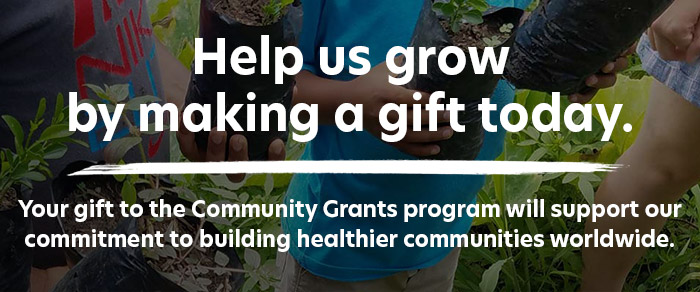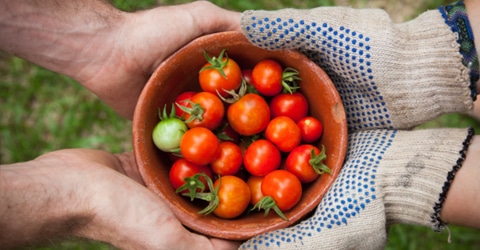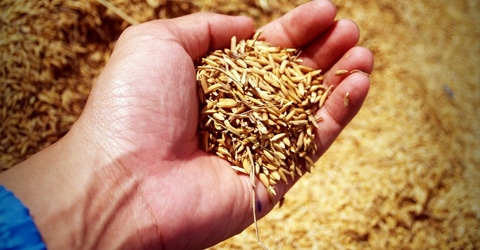

The following is an article from a Community Grant recipient.
It is an injustice of our food system that fresh vegetables are unavailable to so many. The University of Northern Iowa’s Center for Energy & Environmental Education is working to solve this problem.
In Iowa, a scarcity of fresh fruit and vegetables occurs in both urban and rural areas. Despite a glut of unhealthy food—nearly every food venue (restaurants, institutions, schools, hospitals, nursing homes) features highly processed, fatty, and sugary foods—there are huge deficits of fresh fruits and vegetables. This combination leaves us more vulnerable to COVID-19 by fueling the epidemics of obesity, type two diabetes, and cardiovascular diseases.
What can we do at the community scale to demonstrate urgency and turn things around? For one thing, we have to admit that the problem exists. When a bridge collapses, we recognize it as a structural failure; when half of a city lacks access to a full-service grocery store, do we acknowledge it as a food system failure?
If we want to see thriving agriculture-based communities and increased availability of healthy foods, then we need to support our local and regional food economy at every meal. That means households, restaurants, institutions, schools, and hospitals need to rethink how they purchase and prepare food in favor of health, local economic vitality, and fair labor practices in every sector of the food system. It also means changing how we invest in the food system, prioritizing things like local orchards, vegetable farms, grain processing for local consumption, and distribution facilities.
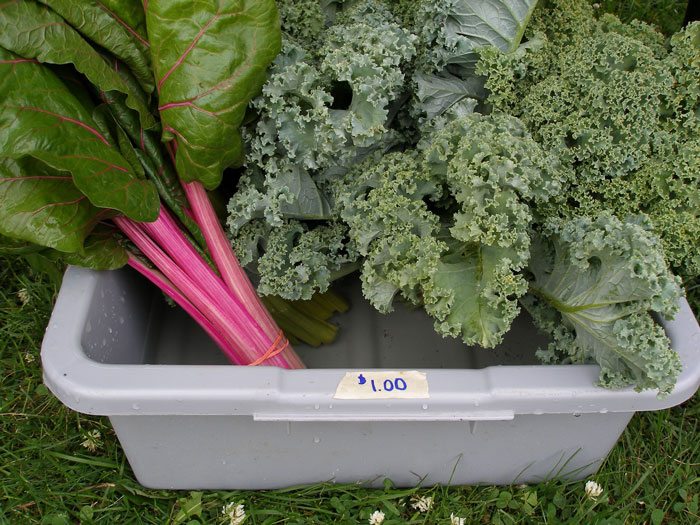
In Black Hawk County, Iowa, where I live, and the six surrounding counties, $90 million in various forms of crop subsidies arrive every year. Not a penny goes to help fruit and vegetable growers. There is no funding for vegetable freezing facilities or for food hubs that serve local institutional food buyers like a public school district. These food system enterprises would create local economic value, support local food and farm businesses, and help us serve ourselves good food, but they are not being invested in.
The room for growth is huge. Only about 5% of school children in the county consume the recommended amount of fruits and veggies. As a result, we have high overweight and obesity rates along with the chronic illnesses that go with them. Unacceptable poverty levels exacerbate and contribute to these health problems.
Again, we must acknowledge these problems. Unfortunately, in my experience, most city and county planners, health professionals, and even people who work in the emergency food enterprises do not understand or acknowledge that our food system is failing both our health and our local economies. People understand the system of streets and highways. They understand a system of municipal services such as police and fire and sewage treatment. They understand that these systems need to be planned carefully in order to function. But the food system is left to itself! Cities and health professionals are only just beginning to understand the inequities in the food system and the role of local governments and local institutions in proactively creating a food system oriented toward health and economic vitality.

Our team of staff, students, and community partners have been able to research, plan, raise funds, and implement several low-cost, high-impact community food initiatives such as:
- Greens-to-Go: a mobile produce stand serving several underserved neighborhoods and featuring veggies harvested and purchased at local farms.
- Veggie Vouchers Program: clinics give vouchers to certain clients who can redeem them for vegetables at any local farmers market throughout the growing season.
- Garden in Every Lot: offers vegetable garden bed preparation, plants, seeds, and mulch as a way of removing barriers to anyone who wishes to start a backyard vegetable garden and rekindle a culture of gardening.
- Vegetable Garden at Peoples Community Health Clinic: serving vulnerable populations, and weekly home delivery of vegetables throughout the entire season. This year, with the help of the CNS grant, we will work one-on-one with some of the families to support plant-based cooking that makes the most of their fresh fruits and vegetables.
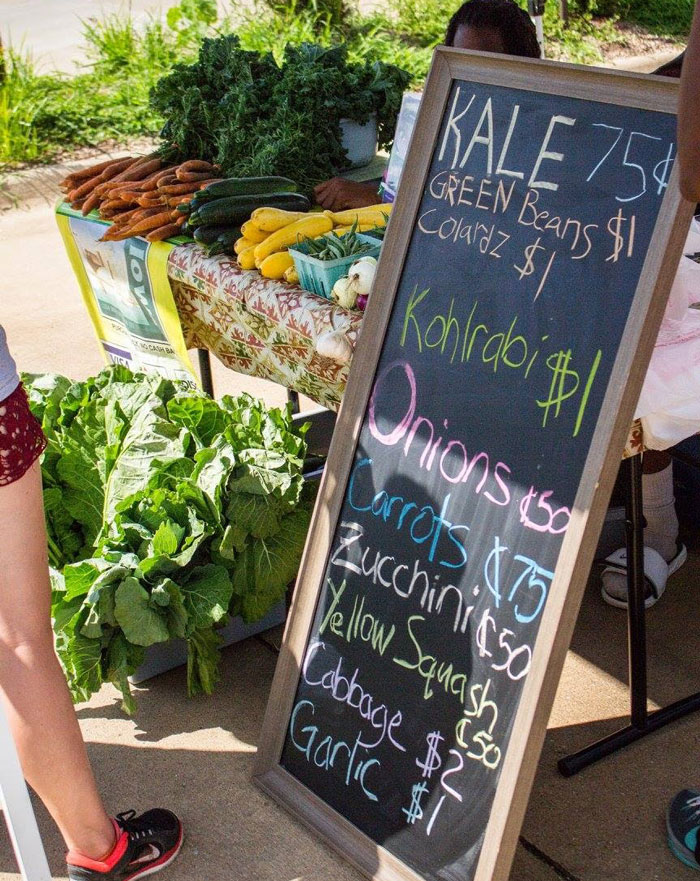
Good food as medicine is the upstream solution to a variety of food system diseases. Health clinics and hospitals can and should invest in their communities to build infrastructures and supply chains that support healthier diets and a culture that nurtures it.
These initiatives offer fresh fruits and vegetables at affordable prices while supporting local farms.
The T. Colin Campbell Center for Nutrition Studies (CNS) is committed to increasing awareness of the extraordinary impact that food has on the health of our bodies, our communities, and our planet. In support of this commitment, CNS has created a Community Grant initiative to empower sustainable food-based initiatives around the world by providing grants to enable innovative start-ups and to propel the growth of existing initiatives. Please consider making a donation to this great cause. 100% of your donation will go to support initiatives like the one you just read about in this article.
Copyright 2026 Center for Nutrition Studies. All rights reserved.
Deepen Your Knowledge With Our
Plant-Based Nutrition
Certificate
Plant-Based Nutrition Certificate
- 23,000+ students
- 100% online, learn at your own pace
- No prerequisites
- Continuing education credits


